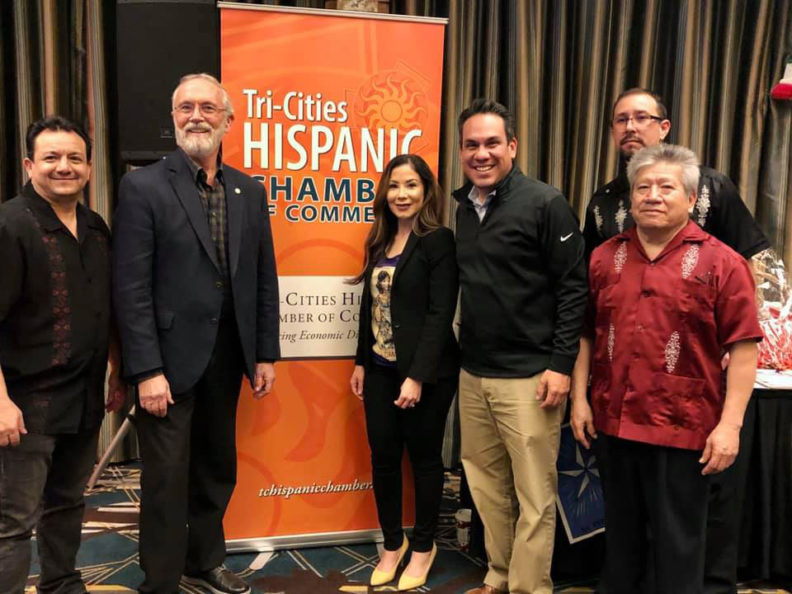Fears of deportation, dreams of earning a college degree to secure a better life, and ways students might help find solutions were among the topics of conversation when two politicians from across the political spectrum converged at Washington State University Tri-Cities to discuss challenges faced by undocumented students.
The effort was part of the American Congressional Exchange program organized by the Bipartisan Policy Center as a means to foster better relationships between members of Congress away from Washington, D.C.

“We want to improve and increase the amount of civility and respect at the legislative level, as well as change the tone of debates and discussions in Washington, D.C., so we can be more productive in finding solutions to many of the problems we all share,” says U.S. Representative Dan Newhouse (’77 Ag. Econ.).
Newhouse (R-WA) welcomed U.S. Representative Pete Aguilar (D-CA) to the mid-Columbia region last winter. At dinner at WSU Tri-Cities, the congressmen met with students from WSU Tri-Cities, Heritage University, and Columbia Basin College to discuss opportunities for civil discourse, and how they could work together to come up with solutions for the federal Deferred Action for Childhood Arrivals (DACA) program.
DACA was established by President Barack Obama in 2012 to grant temporary protection from deportation, known as “deferred action,” to undocumented immigrants who came to the United States before the age of 16, resided in the United States since June 2007, and met other requirements.
In 2017, the Trump administration announced an end to the DACA program. Several states, including Washington, filed a challenge to that decision. The program continues to operate, while discussions on its future have been tied up while Congress debates immigration policies.
Throughout the dinner, students shared personal experiences as DACA participants. Others shared their perspectives as individuals with close ties to people in the program.
One Coug’s journey to citizenship was joining the military. “There were no clear pathways,” says Emmanuel “Manny” Bonilla (’19 Comp. Sci.). “I wanted to serve my country, but there wasn’t a clear way for me to do that. I obtained citizenship, but it wasn’t an easy process. I now wear the flag on my back. I’m proud to have served. There has to be something more we can do to create opportunities for those who were brought here as young kids and want a legal pathway to citizenship.”
Both representatives say hearing students’ personal experiences and challenges is incredibly vital. “Even though we sit on different sides and may vote differently, we must have respectful conversations and discuss important issues that can lead to productive solutions,” Aguilar says.
“We need you to keep sharing your stories,” Newhouse encourages DACA students. “It’s the way that we can all come together and identify the best ways to move forward.”
Finding a solution for DACA students, both congressmen say, is one example for why politicians need to set aside some of their differences and truly work with one another to find pathways forward for a variety of complex topics.
“We can find ways that we can come together and find common ground that leads us to working more closely,” Newhouse says.
